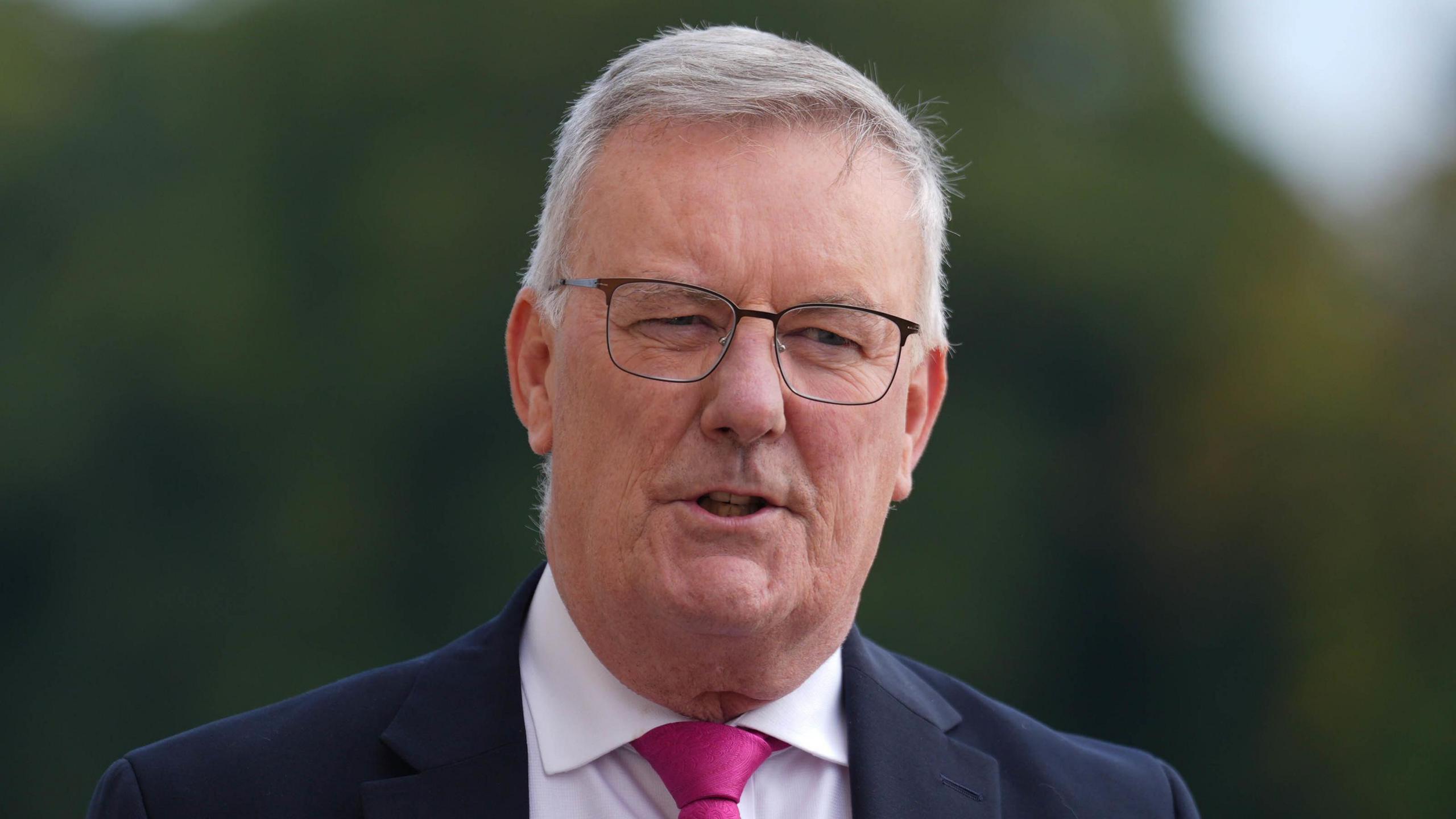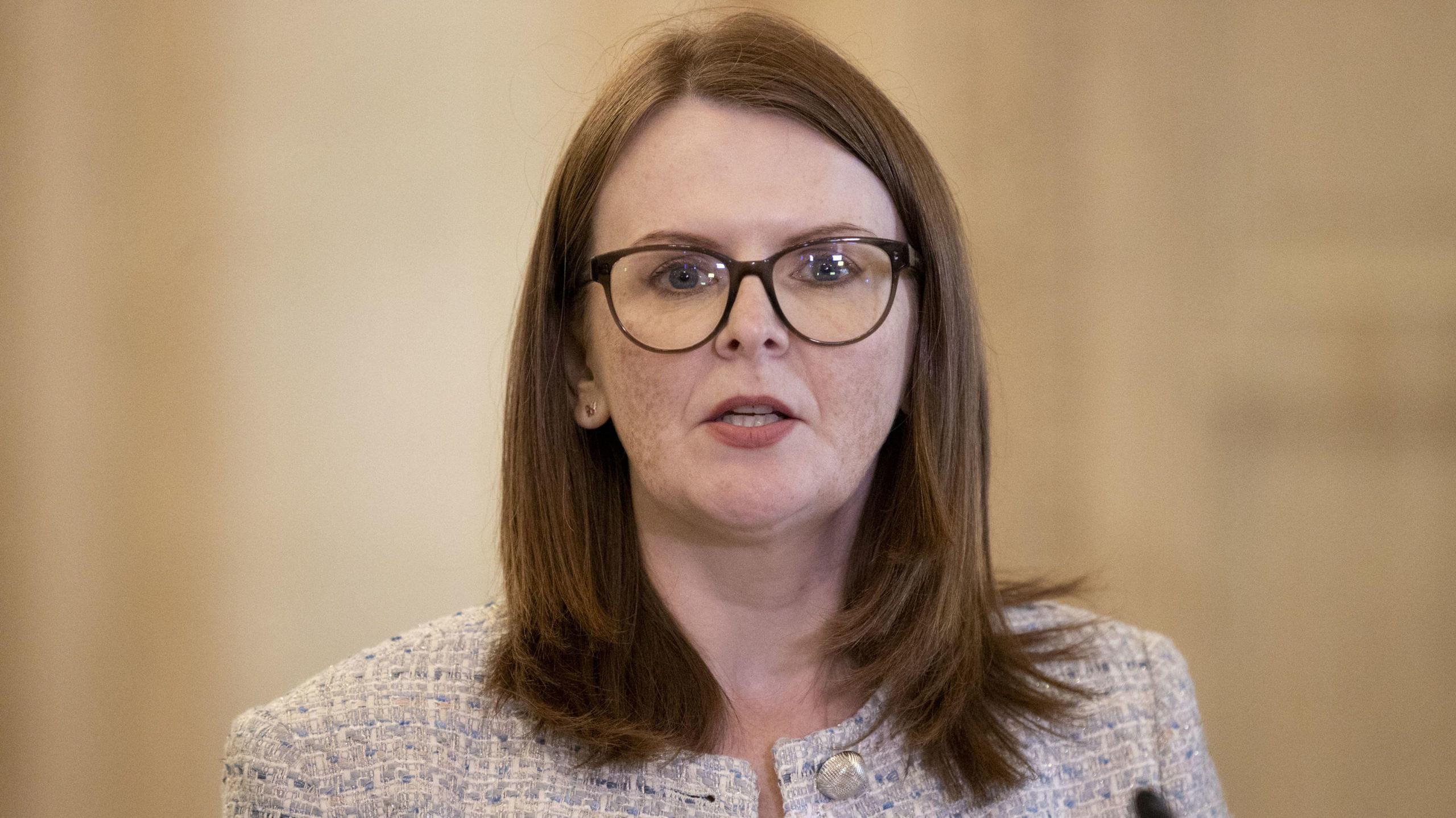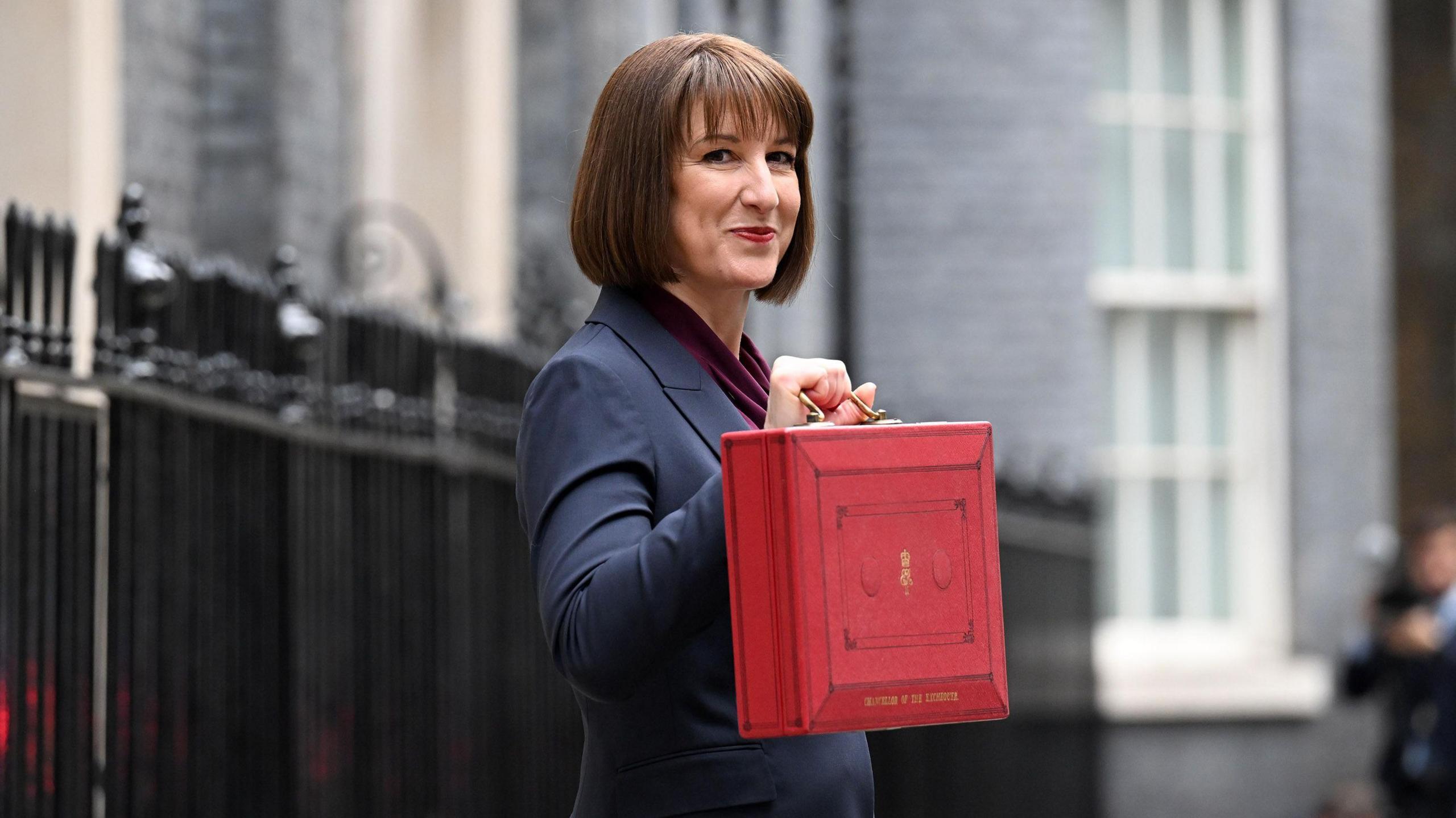Health staff pay deals cannot be matched, says Nesbitt

Mike Nesbitt predicts there will be difficult discussions with health unions ahead
- Published
Stormont's health minister has raised the prospect that he will not be able to match pay deals being given to healthcare staff in other parts of the UK.
Mike Nesbitt was speaking after a budget reallocation exercise known as a monitoring round.
His department got an additional £350m but he said that would leave him £100m short of a balanced budget.
Nesbitt said he was "incredibly reluctant" to overspend and predicted difficult discussions with health unions.
Last week, members of the Unison union held a rally at Stormont, warning of potential industrial action over pay.
The independent Pay Review Body recommended a 5.5% increase for health staff in Northern Ireland for 2024-25.
The same recommendation has been implemented for NHS workers in other parts of the UK but so far not in Northern Ireland.
Nesbitt said his options now were either to overspend or go into negotiations with the unions "making clear from the get-go that I don't have enough money for the various national pay awards to be met".
"I'm not prepared to look a health worker in the eye, to (health) trusts who have delivered over £200m in savings this year, and say: 'I'm not trying to maintain pay parity for you'," he said.
How much money does the Department of Health need?
Nesbitt added that he still needed £100m to balance his department's budget this year, and that he was "incredibly reluctant" to overspend.
Nesbitt said he would enter talks with health unions about pay parity and hoped there could be room for negotiation, but that he anticipated those discussions could prove difficult.
Deputy First Minister Emma Little Pengelly said there was a "collective acknowledgment" that this was "not a round of allocations that allows ministers to prioritise pay in the way that they would want to do".

Caoimhe Archibald told MLAs that departments would be facing spending pressures
Earlier this year, finance minister Caoimhe Archibald, told MLAs that departments were facing spending total pressures of £767m.
A spending pressure is when a department believes it needs more money than is currently available in its budget.
The new allocations help to relieve that but First Minister Michelle O'Neill said £180m of pressures remained.
"One budget was not going to be enough to reverse the toxic legacy of austerity," she added.
What is a monitoring round?
Monitoring rounds provide a system to review spending plans and priorities.
They allow for changes in executive priorities to be reflected in additional allocations and provide flexibility to meet emerging needs.
Monitoring rounds are usually held three times a year, in January, June and October.
Winter fuel payment cuts
The Department for Communities has been given £17m to partially mitigate the impact of the cut in winter fuel payments for pensioners.
In July, Chancellor Rachel Reeves announced the payments of up to £300 would become means tested in England and Wales, and would only be given to those on certain benefits.
Stormont later decided to follow that policy as it would have cost the Executive £44m a year to maintain universal payments.
At the time, Communities Minister Gordon Lyons said: "Regrettably there is no additional resource available in the budget to allow us to diverge from the UK government decision."
It is not yet clear how the £17m will be distributed to pensioners.
An extra £24m will also be made available to the Department for Communities for building social homes.
Earlier this year Stormont faced criticism for cutting the social housing budget.
It meant there was only enough money to fund 400 new social houses against a target of 2,000.
The deputy first minister said the new money would deliver an additional 1,400 homes.
More money for Justice Department
An extra £36m will be given to the Department of Justice.
It had previously said increased demands, more complex investigations and court backlogs had put significant pressures on its budgets.
Northern Ireland's director of public prosecutions, Stephen Herron, said victims were being let down because of underfunding, and said the Public Prosecution Service needed an extra £7m a year.
In September, PSNI Chief Constable Jon Boucher said the service was at a "watershed moment" with current officer numbers.
He indicated then that he wanted to increase its headcount from 6,300 officers to 7,000 by 2028.
Justice Minister Naomi Long said the extra £36m was "very welcome news" and would go some way to alleviating pressures the department was facing.
"We will now consider how this additional funding can be best allocated," she said.
The finance minister also intends to produce a draft budget for the 2025-26 financial year before Christmas.
That will then go out to public consultation to be finalised for the start of the financial year.
The Westminster budget means Stormont will have an additional £1.5bn to spend next year.
- Published16 October 2024

- Published3 November 2024
